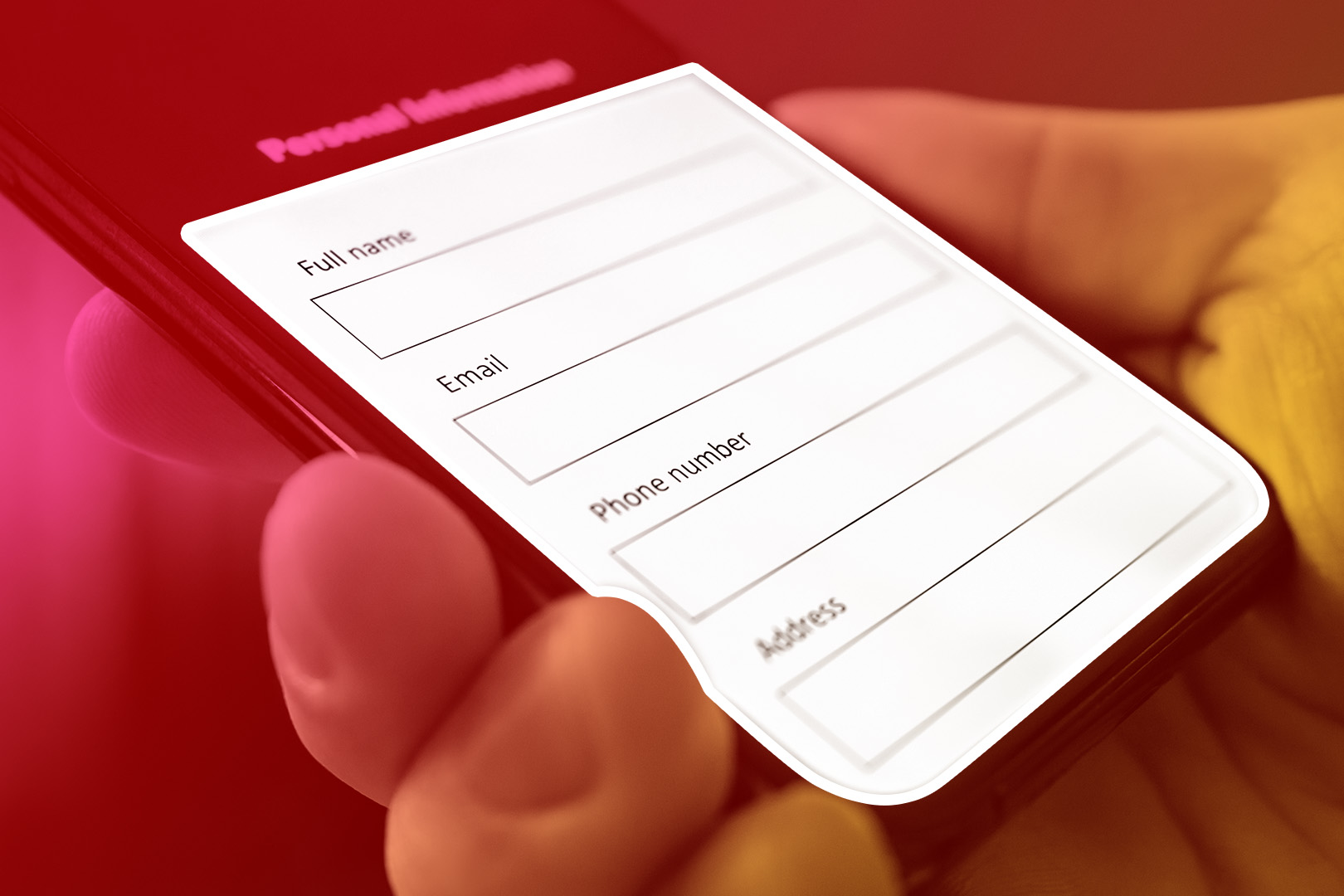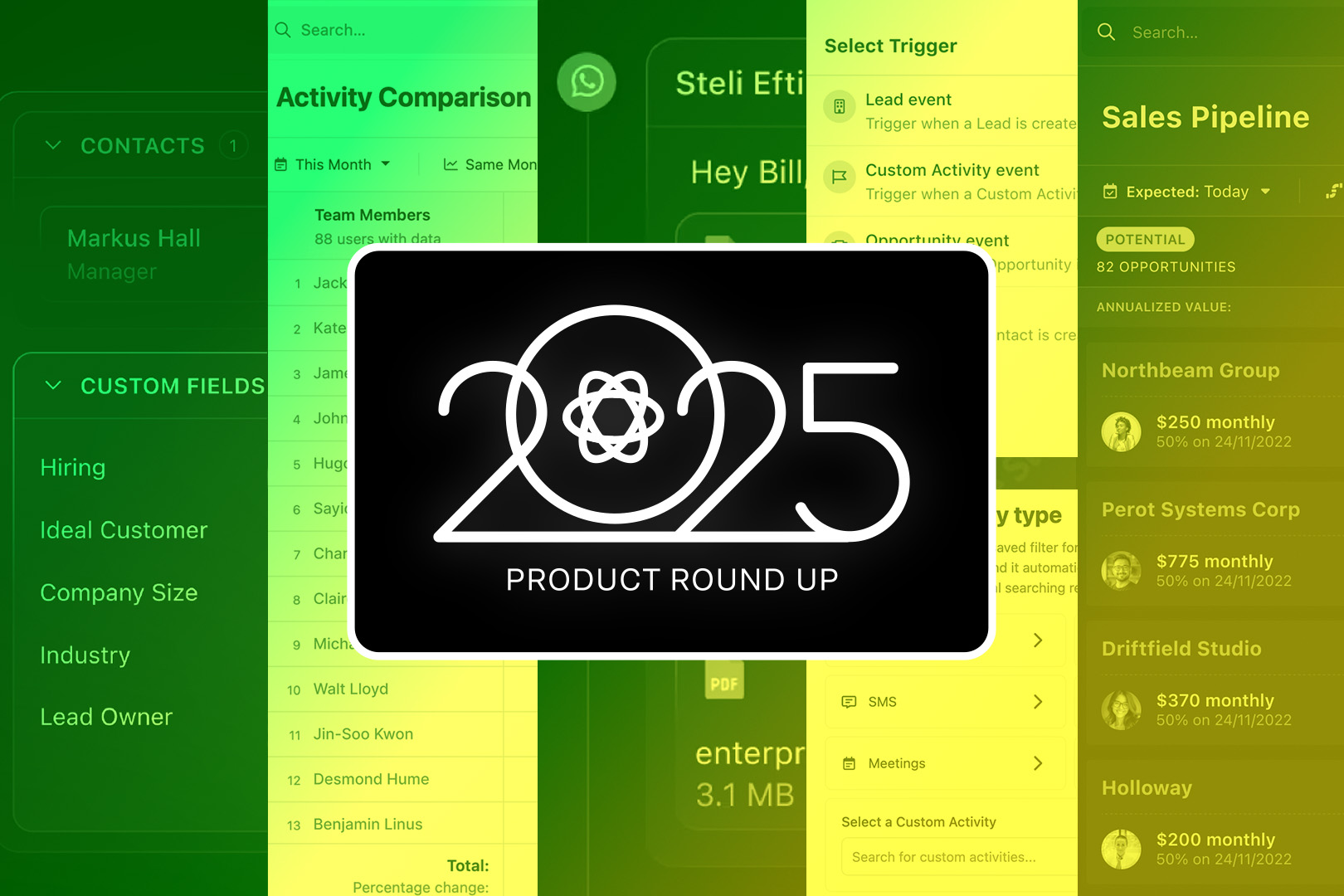Asking the right questions can be the difference between closing the deal and losing it.
Every great sales professional I've ever met is great at asking questions and listening to the answers.
When your reps ask the right questions, they are empowered to:
- Qualify prospects quickly
- Determine real needs (not just what appears on the surface)
- Understand the prospect’s buying process
- Figure out their budget and the other solutions they’re considering
- Set a clear path to a close
So, are you training your reps to ask the right questions? If you see them struggling with any of the above points, keep reading—we’re about to dive into 24 of the best questions you can train your reps to ask, including:
- 11 Sales training questions to ask while prospecting & qualifying
- 5 Sales training questions to teach your reps to close more deals
- 5 Follow up sales training questions that help reps dig deeper
Are you seeking strategies for successful lead generation? Our comprehensive real estate prospecting guide awaits. And if you want to learn more about real estate marketing strategies, well, we've also got you covered!
11 Sales Training Questions to Ask While Prospecting & Qualifying
Prospecting and qualifying are two pieces of the early sales process, and it’s especially important to ask good questions during these stages.
With the right questions, reps can identify key accounts, correctly score their leads, and ultimately place priority on the deals that are more likely to close.
These are the sales-qualifying questions that your prospects should be able to repeat back in their sleep.
1. “How well does this prospect fit the ideal customer profile?”
What this question is assessing: ICP fit
How this question enables reps to sell better: Brings focus to the right leads
Unlike the other questions in this list, the first question is one that the sales rep should ask themselves.
When they take the ideal customer profile that your company has built, they should be trained to compare each new prospect to that ICP and determine whether this prospect is right for the product they’re selling.
This helps them put the right amount of effort into the leads more likely to close.
Don’t have your ideal customer profile set up yet? No worries—just use our Ideal Customer Profile Kit Template to access all the tools you need to create your own customer profiles from scratch.
2. “How did you hear about us?”
What this question is assessing: Most current, relevant need
How this question enables reps to sell better: Gives them an idea of the trigger behind their interest
This is one of the most important sales training questions for inbound sales reps to determine what the main motivating factor is in reaching out to you, as well as the level of interest they have in your product.
For example, these responses can tell you a lot about what a prospect really needs:
- “I was researching sales automation tools that allow you to send personalized email sequences, and I was impressed with how your system works.”
- “I was chatting with my friend Michael Scott about how much I hate the pipeline view of our current CRM. Michael has been using your software for a few years, so he recommended I check it out.”
In each of these cases, that simple question shows you the exact challenge this prospect was looking to solve when they found you and how urgently they need a solution.
For outbound sales, you might adapt this question to something like:
“I’m sure I’m not the only cold call you’ve received this week—why did you decide to stay on the line with me?”
Or:
“What was it that made you open my initial email?”
3. “What are the top challenges your team is currently facing?”
What this question is assessing: Needs
How this question enables reps to sell better: Helps them focus on solving problems
The best way to sell (especially in SaaS) is to solve a problem. And your reps can’t solve problems until they ask which problems are most important to their prospects.
Training your reps to ask about challenges and pain points early in the qualifying process also helps them ensure this prospect is a good fit for your product.
4. “What motivated you to look for a solution now?”
What this question is assessing: Urgency
How this question enables reps to sell better: Reveals main triggers and urgency
What catalyst began this prospect’s search for a new solution? When your reps ask this question, they’ll be able to see just how motivated the prospect is to purchase. Later on, they'll be able to create urgency in the sales conversation to motivate the prospect to take action.

5. “What's your ideal timeline to implement a solution?”
What this question is assessing: Timeline
How this question enables reps to sell better: Helps determine fit and set the right level of priority
How soon does this prospect expect to start using their new solution? Is that expectation reasonable? Does it fit your product's normal sales cycle length and implementation time?
Asking sales training questions like this can help your reps reveal red flags that the deal isn’t a good fit. For example, the prospect may need a solution faster than your company can deliver it, or they may have no expectation for their timeline (a sign that they may just be kicking tires).
6. “How much have you spent on similar solutions?”
What this question is assessing: Budget
How this question enables reps to sell better: Gives reps a quick view of the budget without asking directly
Asking directly how much money a prospect wants to spend on a solution may feel awkward, especially for junior reps. This is a great sales training question to use instead because it allows reps to get a glimpse of the prospect's budget without asking the question directly.
7. “Tell me about your current process for...”
What this question is assessing: Needs and product fit
How this question enables reps to sell better: See if the prospect’s workflow will fit into your product
This is a great question to train your reps, especially in SaaS sales. When reps know a prospect’s current workflow related to your product, they’ll be better prepared to show the prospect how your solution can help them improve their current process or work within it.
8. “What's not working with your current solution?”
What this question is assessing: Needs and challenges
How this question enables reps to sell better: See key areas where prospects need an improved solution
Training your reps to ask this question will help them gain a better perspective of what the prospect needs. They can then adapt their sales pitch to show how your solution is better than the prospect currently uses.
9. “Tell me about the people who will be using this solution.”
What this question is assessing: End-user needs
How this question enables reps to sell better: Shows them how to sell to the end user
Chances are, your reps aren’t speaking to the end user in this sales conversation. Hopefully, they’re trying to sell to a decision-maker—but that doesn’t negate the importance of the people who will use your product.
Even if the decision-maker loves the idea of your solution, they could churn down the road if the end-users aren’t convinced of its value. Teach your reps to use this question in sales conversations so they can gain the right perspective to sell to the end-users and other decision-makers.
10. “Who else are you comparing us to?”
What this question is assessing: Competition
How this question enables reps to sell better: Understand current competition
This is an essential B2B sales question that your reps should always ask. After all, it’s rare for a prospect to only consider one solution to their problem.
When your reps understand which alternatives the prospect is considering (and why they’re considering those options), they can position themselves more favorably against other competitors.
11. “When was the last time you made a purchase decision for a similar solution?”
What this question is assessing: Decision-making process
How this question enables reps to sell better: Shows them how this company normally makes decisions and who is involved
Decision-making varies from company to company, so this is a vital question your reps should ask early in the sales process. Train reps to ask questions about previous purchase decisions, and they’ll see:
- How often this company makes software purchase decisions
- Who is involved in those decisions
- How complex the process is, or the steps that are involved
This can help your reps plan better to close this deal, avoid surprise roadblocks, and forecast more accurately.
Are you looking for more qualifying questions to teach your reps? Look no further—download our free list of 42 B2B qualifying questions that your team can refer back to and use to qualify their leads better (and help them close down the road).
5 Sales Training Questions to Teach Your Reps to Close More Deals
Questions can be a powerful tool for your reps when they’re getting ready to close the sale. Here are five essential questions you should be training your reps to ask at the end of the sales process:
12. “Given what we've talked about so far, how do you imagine your [department] process would be different if we were to move forward?”
What this question does for the prospect: Allows them to imagine a world with your solution
How this question enables reps to sell better: Gives reps a clear focus for their closing argument
What will the prospect’s world look like with your solution? Train your reps to use this question to help prospects see themselves and their team using your product and the benefits of doing so.
13. “Do you foresee any major roadblocks to closing this deal?”
What this question does for the prospect: Gets them thinking about the next steps
How this question enables reps to sell better: Allows them to foresee roadblocks
This sales training question allows reps to illuminate the path to a closed deal a bit more. This helps them avoid being surprised by obstacles as they approach the end of the deal cycle.
14. “If I could give you a solution to [objection], would you be ready to make this deal by next week?”
What this question does for the prospect: Allows them to foresee buying time frame
How this question enables reps to sell better: Gives reps a clear view of where the deal is headed
This is a powerful closing question for your reps since it will tell them whether a prospect is really ready to purchase or whether there are still more hoops to jump through.
If a prospect uses objections to delay a purchase, this question will help your reps discover that. If this objection is truly the only thing holding them back, reps can prioritize solving the issue and closing the deal.
15. “Based on what we've discussed, do you think our solution is a good fit for your needs?”
What this question does for the prospect: Allows them to express doubts or concerns
How this question enables reps to sell better: Helps reps gauge how close they are to winning the deal
This sales training question works like a temperature gauge for your reps, allowing them to see where the prospect stands based on the information they’ve covered during the sales process.
Train your reps to use this question to determine whether any underlying issues need to be addressed before taking more committed steps toward a deal.
16. “What will it take for you to become a customer?”
What this question does for the prospect: Makes them think seriously about what the next steps are
How this question enables reps to sell better: Gives them a clear path to a sale
This might be the single most powerful question to ask in a sales conversation, which is why I dedicated an entire video to it a few years ago:
Your reps may think they’re about to get a contract signed when the prospect suddenly sends a long list of other steps to be completed before the deal can be closed. You want to clearly map out the path towards the close early on.
Asking this question when the deal is, further along, will help your reps see what actually needs to be done before they can close the deal. This will help them set up the right next steps, get the right stakeholders involved, and go through the correct channels to close the deal faster.
Of course, to get a clearer view of the path toward a sale, it’s essential to train your reps to ask good follow-up questions. Then, they can probe deeper motivations and fully uncover the steps needed to close the deal.
So, what kind of follow-up questions should you be training your reps to use?
5 Follow-Up Sales Training Questions that Help Reps Dig Deeper
In sales, the fortune is in the follow-up, and that's true in the context of asking questions. When training your reps to ask good questions, they must learn to dig deeper and get more extended responses from their prospects.
The following questions are open-ended, allowing prospects to speak freely while reps listen attentively.
When training, remember to instill this principle in them—asking sales questions is less about interpretation and more about elicitation.
In other words, reps should never assume they understand what their prospects mean. Instead, they should use good follow-up questions to dig into deeper details.
17. “Can you talk me through...”
This question is great when reps want to get a deeper understanding of the prospects:
- Workflows and processes
- Decision-making process
- Current challenges
This phrasing tells prospects that the rep is looking for a long answer with a clear explanation of the topic, so they’ll feel free to open up.
18. “Do you have an example of that for me?”
It is excellent to train your reps to ask for an example. This question can help new or junior reps be 100 percent sure they understand what a prospect wants to say.
For example, let’s imagine a prospect says:
“Ease of use is essential to us in software.”
Train your reps to dig deeper by asking something like this:
“That makes sense. Do you have an example of software your team is using that they’ve found easy to use? This will help me understand better what you’re looking for with ease of use.”
19. “What exactly do you mean by...”
Again, this sales training question will most benefit new or junior reps still gaining industry experience and with your target customers.
This question also tells prospects that the rep is genuinely interested in their opinions and wants to understand their business and challenges well before recommending a solution. This, in turn, will foster trust and open communication in your customer relationships.

20. “That’s a great question! In an ideal world, what would be the answer?”
In a nutshell, a prospect has asked a question, probably about a specific feature or goal. When reps respond with the above, they can assess the real motivation behind a prospect’s question before they answer.
If you don’t train your reps to respond with sales questions that help them dig deeper, they’ll probably have a lot of conversations like this:
Ouch.
Help reps dig into the motivation behind the question by asking something like:
- What would you want the answer to be?
- How would this work for you in an ideal world?
- What would you want me to say?
21. “Why?”
It may be last on our list, but “Why?” might be the most powerful sales training question your reps can learn.
The best way to keep prospects talking is to ask a simple question: “Why?”
Train your reps to ask why, and they’ll learn how to reveal true motivations and deeper needs.
Better Sales Training Questions Equal Better Deals
Want your reps to close better deals? Then, teach them to ask better questions.
With the right questions, your reps can qualify faster (and more accurately), build a solid pipeline of essential deals, prioritize their time correctly, and be better prepared to close the deal.
Want even more sales training questions to teach your reps? Download our free list of 42 B2B sales questions!












